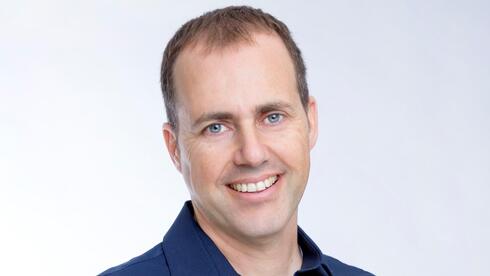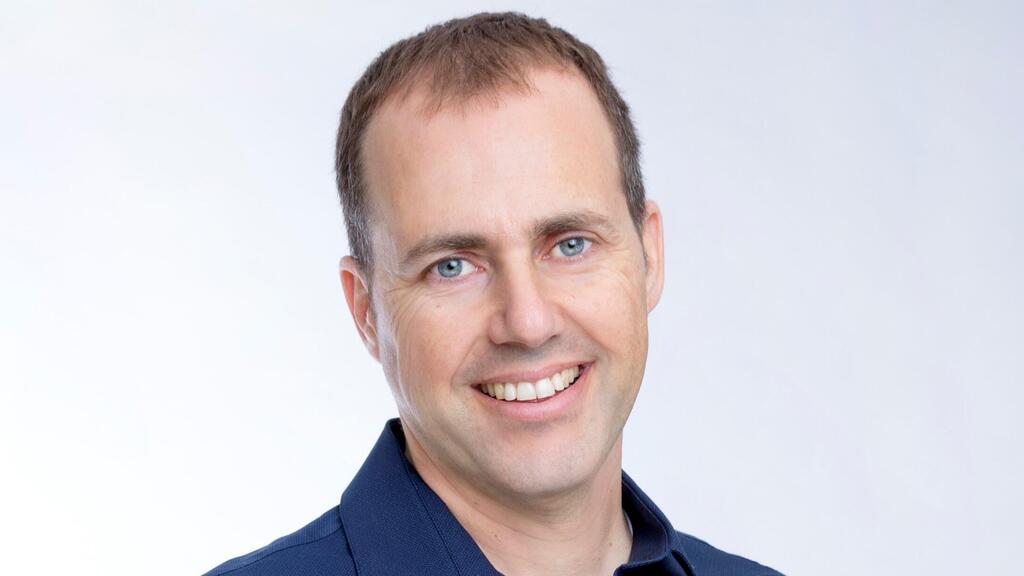
2022 VC Survey
“Generative AI is the latest buzz in the VC industry and will attract investors’ attention in 2023"
Qualcomm Ventures predicts that not all is doom and gloom when looking ahead at the potential in the next year
“There are several opportunities in 2023 for startups,” said Boaz Peer, Senior Director at Qualcomm Ventures. “AI in general and generative AI which is the latest buzz in the VC industry will attract investors’ attention in 2023.”
The tech sector appears to be in crisis, but there are many industries that show resilience and potential as we progress through the year. “The combination of AI and other technologies like IoT, robotics, retail, manufacturing, energy, and supply chain is also interesting,” Peer continued. “The maturity of some of these technologies aiming to bridge the gap between the digital and physical worlds through automation, optimization, and cost-saving introduces good opportunities for startups.”
Name of fund/funds: Qualcomm Ventures
Total sum of fund: $2 billion under management; over 150 active portfolio companies
Partners (in Israel): Merav Weinryb, Boaz Peer, Michelle Taycher-Nishry
Notable/select portfolio companies (active): Wiliot, Tytocare, Flolive, Shopic, Coretigo, Resolution Games, JoyTunes, Quantum Machines, Weka.IO, Tabnine, echo3D, i3 equity partners, Scylla DB
Notable exits: SentinelOne, Waze, Prospera, CyberX, Ravello, Cellwize, Wilocity, Magisto, Crazy Labs
Peer joined CTech as part of its 2022 VC Survey series to share his predictions for the year ahead.
If 2020 was the year of the pandemic, and 2021 was the year of records, how would you define 2022 in the VC sector?
2022, and especially the 2nd half of year, reflected the macro-economic environment changes and was a year of “back to reality” after 2021 which was an outlier.
The rapid increase of the interest rate in the US, Europe, and Israel by central banks, aiming to reduce the high inflation, had a significant direct impact on public markets value and later the VC market, especially on late-stage companies but not only them.
Investors put more emphasis on fundamental business metrics in addition to growth rates that many focused on in 2021. Efficiency, focus, and a path for profitability became much more important as the access to capital and the bar to raise is higher.
Who are the big winners of 2022 and why?
The big winners were the ones that proved that their product is a real pain killer and not a vitamin. These are the ones that showed that they have a clear product-market fit and competitive edge, so even when their customers cut their budget, they continue to use and pay for their product.
From a financial perspective, the big winners were startups that raised a significant amount of money in 2021 and during the first half of 2022 but understood the environment may change soon, so managed their burn rate carefully and probably won’t need to raise again in the next 18 months.
Who are the big losers of 2022 and why?
The big losers were the ones that raised a lot of money in an inflated valuation and didn’t keep an eye on their burn rate, focused mainly on growth, and sacrificed other important metrics such as unit economics, sales efficiency, etc.
These will have now to reduce their expenses dramatically to increase their runway and will raise money in lower valuation reflecting the adjusted market environment.
What do you expect in the VC sector in 2023?
I believe that 2023 will follow the 2nd half of 2022 in terms of stage focus, meaning much fewer investments in late-stage companies and more in early-stage ones.
Early-stage companies that are born into a crisis should manage their cash more carefully. Also, it will take them time to develop their product so once they are ready to sell within 18-24 months the market may be in a different place.
Late-stage companies will probably continue to adjust costs and try to increase their runway and many of these won’t go for fundraising unless they have no other choices. We will see more of these in the 2nd half of 2023 and 2024.
At Qualcomm Ventures, we are going to continue and invest globally and across all stages and not sit on the fence. This is relevant both for new investments and follow-on investments in our portfolio companies.
Although the sentiment is extremely negative now, any crisis also introduces great opportunities both for startups and investors. We are still very optimistic about technology growth in general and about the Israeli startup scene.
What global processes will affect (positively and negatively) the Israeli market?
The global market is highly affected by interest and inflation rates and of course by geopolitical events. Israeli high-tech has a strong correlation with the global markets’ performance.
Israeli startups sell to global markets, and since many global companies are now reducing their expenses, this will impact the top line of many startups selling to these.
From an investment perspective, I believe that some foreign investors that don’t have a long history of VC investments in general and specifically in Israel will be much more careful to invest here.
How should different companies prepare for the coming year?
Startups across all stages need to make sure they are efficient as possible and have enough cash to reach their next significant milestone.
Most startups are now reducing costs to increase their runway, but another assumption should be that many of the startups will face slower growth in revenue and lower top-line, so this should be reflected in their budget planning and require wise and elastic decision-making throughout the year.
What will be of the dozens of unicorns born last year?
It depends on how these unicorns won this title.
The ones that reached this valuation after gaining significant revenues and building a sustainable business model will maintain their leading position.
Others that raised based on very high revenue multiple and still didn’t prove that they can scale their sales efficiently are likely to be affected and may have to raise in a lower valuation.
However, the unicorn title really matters at the exit or a liquidation event so even a down-round, which is a tough event for the founders and existing investors, doesn’t necessarily mean these companies can’t recover and succeed if they are making the right steps to improve.
What sectors in high-tech should we look out for in the coming year - and why?
There are several opportunities in 2023 for startups.
AI in general and generative AI which is the latest buzz in the VC industry will attract investors’ attention in 2023.
The combination of AI and other technologies like IoT, robotics, retail, manufacturing, energy, and supply chain is also interesting. The maturity of some of these technologies aiming to bridge the gap between the digital and physical worlds through automation, optimization, and cost-saving introduces good opportunities for startups.
In addition, sustainability and climatetech-related investments that already got great traction in the past two years will probably continue to grow this year.
Also, the expected release of new VR and later AR devices by big new vendors in 2023, may create new opportunities for startups in gaming, consumer use cases, and enterprise solutions
HR: Do the layoffs, those that have already happened and those that are coming, help to fix in any way the distress experienced by companies over the past 2-3 years?
It’s a simple supply-demand curve story. Since now both big tech companies and matured startups reduce costs, it will help early-stage startups to recruit good employees more easily. The best talent will always get fantastic offers, but others may have to compromise until the market dynamics changes again.
Quantum Machines, Tabnine, echo3D, and Shopic - Qualcomm Ventures’ notable portfolio companies
Quantum Machines
Quantum Computing: Quantum Machines has established itself as the leading provider of control and operation systems for quantum computing across companies and research centers. Over the past few years, the company has developed a full-stack Quantum Orchestration Platform, with the combined software and hardware solution enabling an entirely new approach to controlling and operating quantum processors
Founders: Dr. Itamar Sivan (CEO), Dr. Yonatan Cohen (CTO), Dr. Nissim Ofek (Chief Engineer)
Founding year: 2018
Number of employees: 124
Tabnine
Generative AI: Tabnine is an AI assistant that dramatically improves speed and quality of software development. Used by more than 1 million developers, Tabnine is also well suited to enterprises with a private, secure, and compliant solution. Notably, Tabnine's AI is adaptable and can be specialized to capture customer-specific coding patterns and best practices.
Founders: Dror Weiss, Eran Yahav
Founding year: 2017
Number of employees: 30
echo3D
Metaverse/Cloud: echo3D is a cloud platform for 3D asset management that provides tools and network infrastructure for developers to build 3D/AR/VR and Metaverse apps and games. echo3D serves over 40,000 developers using their SDKs to create real-time 3D experiences for gaming, AR/VR, eCommerce, entertainment, training, and more.
Founders: Alon Grinshpoon, Koren Grinshpoon, Ben Pedazur
Founding year: 2018
Number of employees: 11
Shopic
Retail: Shopic’s product is a computer vision-based clip-on device that turns any regular shopping cart into a smart cart, and it is already widely deployed in retails stores globally. It is transforming the retail experience, both for shoppers and retailers, by creating low friction, highly personalized, and fully interactive shopping experiences in brick-and-mortar supermarkets. Bringing the advantages of online commerce to physical stores, and helping grocers optimize their store management with digitized data analytics.
Founders: Raz Golan, CEO, Eran Kravitz, CTO
Founding year: 2014
Number of employees: 78













